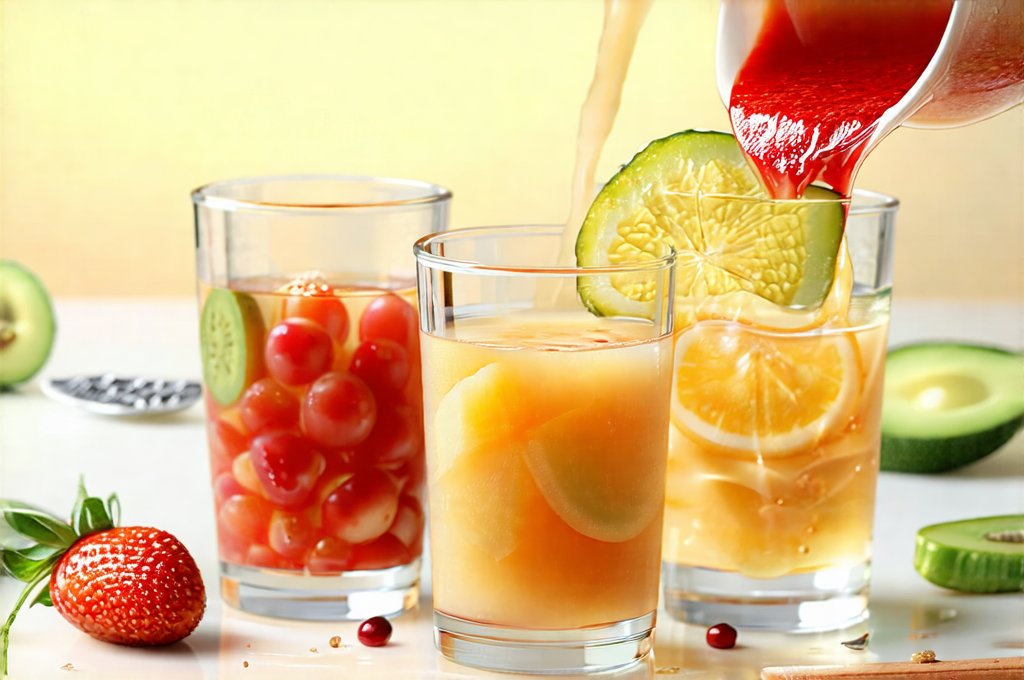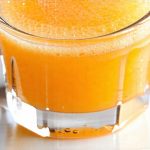Our bodies are remarkable self-cleaning machines, but sometimes they need a little support. Modern diets, stress, and environmental factors can often lead to digestive sluggishness, impacting not only our gut health but also overall wellbeing. Many approaches to “cleansing” involve drastic measures that can actually disrupt the natural processes of the body. A gentler, more sustainable approach focuses on nourishing the system with foods rich in water content and fiber, supporting its inherent ability to detoxify and function optimally. This isn’t about restrictive diets or quick fixes; it’s about incorporating hydrating foods into your everyday routine to promote a healthy digestive tract and enhance vitality.
The concept of “cleansing” often conjures images of extreme measures, but true internal health is built upon consistent, nourishing habits. Focusing on hydration and fiber-rich foods supports the natural elimination processes of the body without causing shock or disruption. These foods help move waste through the system efficiently, reducing bloating, improving nutrient absorption, and promoting a balanced gut microbiome. By prioritizing these types of foods, we can create a foundation for long-term digestive health and overall wellness – one that’s sustainable, enjoyable, and aligned with our bodies’ natural rhythms. Understanding foods that help restore pH balance is a great starting point.
The Power of Water-Rich Fruits & Vegetables
Fruits and vegetables boasting high water content are arguably the most effective tools for gentle digestive cleansing. Their inherent properties facilitate smooth bowel movements, preventing constipation and promoting regular elimination. This is because water acts as a lubricant within the digestive tract, softening stool and aiding its passage. Beyond simple hydration, these foods also contain essential vitamins, minerals, and antioxidants that support overall health and contribute to a robust immune system. Prioritizing these foods isn’t just about cleansing; it’s about nourishing your body from the inside out.
Consider watermelon, for instance – over 90% water! This makes it an exceptional choice for hydration and gentle flushing of toxins. Similarly, cucumbers are incredibly hydrating and contain compounds like cucurbitacins which have been studied for their potential benefits in reducing inflammation. Celery is another fantastic option; its high fiber content combined with significant water volume aids digestion and supports healthy gut motility. These aren’t merely “detox” foods; they’re fundamental components of a balanced diet that support optimal digestive function. It’s important to be aware of everyday foods that can negatively impact your system too.
Furthermore, incorporating these hydrating fruits and vegetables doesn’t have to be complicated. Simple additions like adding sliced cucumbers to your water, enjoying a watermelon snack on a hot day, or including celery sticks with hummus can make a significant difference. The key is consistency – regularly integrating these foods into your diet will yield the most substantial benefits for digestive health and overall wellbeing.
Fiber’s Role in Digestive Health
Fiber is another cornerstone of gentle digestive cleansing. It’s not digested by the body, meaning it adds bulk to stool, promoting regular bowel movements and preventing constipation. There are two main types of fiber: soluble and insoluble. Soluble fiber dissolves in water, forming a gel-like substance that helps lower cholesterol and regulate blood sugar levels. Good sources include oats, beans, apples, and citrus fruits. Insoluble fiber doesn’t dissolve in water and adds bulk to the stool, speeding up its passage through the digestive tract. Sources include whole grains, vegetables, and wheat bran. Both types of fiber are crucial for a healthy digestive system.
A diet lacking in fiber can lead to several digestive issues, including constipation, bloating, and even an increased risk of colon cancer. By consciously increasing your fiber intake, you’re supporting the natural cleansing processes of your body and promoting a healthier gut microbiome – the community of microorganisms living in your digestive tract that play a vital role in overall health. This microbiome thrives on fiber, producing beneficial compounds that support immune function and reduce inflammation. You can learn how to identify foods that will best suit your gut’s needs.
Gradually increasing fiber is important to avoid discomfort. Start by adding small amounts of high-fiber foods to your diet and drinking plenty of water to help move the fiber through your system. Listen to your body and adjust your intake as needed. Remember, consistency is key – making fiber a regular part of your diet will yield long-term benefits for digestive health and overall wellbeing.
Gentle Cleansing Strategies with Specific Foods
One effective strategy involves incorporating warm lemon water first thing in the morning. While not a drastic cleanse, the warmth stimulates digestion and the citric acid can gently support liver function. This isn’t about “detoxing” so much as it is about preparing your digestive system for the day. Follow this with a breakfast that includes fiber-rich foods like oatmeal or chia seeds soaked overnight in almond milk, topped with berries – providing both hydration and fiber.
Another helpful practice is to consume probiotic-rich foods alongside hydrating options. Fermented foods like yogurt (with live cultures), kefir, sauerkraut, and kimchi introduce beneficial bacteria into your gut, supporting a healthy microbiome and improving digestion. Combining these with water-rich fruits and vegetables creates a synergistic effect, promoting both hydration and a balanced gut environment. Foods that soothe after reflux can also be incredibly helpful in managing digestive discomfort.
Finally, consider incorporating herbal teas known for their digestive benefits. Ginger tea can help soothe an upset stomach and reduce bloating, while peppermint tea may aid in relieving indigestion. These teas, coupled with hydrating foods, offer a gentle and natural way to support your digestive system. Remember to choose organic options whenever possible.
The Importance of Mindful Eating
Digestive health isn’t solely about what you eat; it’s also about how you eat. Rushing through meals or eating while stressed can negatively impact digestion, leading to bloating, indigestion, and impaired nutrient absorption. Practicing mindful eating – paying attention to your food, savoring each bite, and chewing thoroughly – allows your body to properly digest and absorb nutrients.
Creating a calm and relaxed environment during mealtimes is also crucial. Avoid distractions like television or smartphones, and focus on enjoying your food. Chewing your food thoroughly breaks it down into smaller particles, making it easier for your digestive system to process. This simple act can significantly improve digestion and reduce the risk of bloating and discomfort.
Mindful eating isn’t a restrictive practice; it’s about cultivating a healthier relationship with food. It encourages you to listen to your body’s hunger and fullness cues, preventing overeating and promoting a more balanced approach to nutrition. By combining mindful eating habits with hydrating foods and fiber-rich diets, you can create a holistic approach to digestive health that supports overall wellbeing.
Staying Hydrated Beyond Food
While hydrating foods play a significant role, don’t underestimate the importance of drinking plain water throughout the day. Aim for at least eight glasses (64 ounces) per day, adjusting based on your activity level and climate. Carry a reusable water bottle with you as a visual reminder to stay hydrated. Infusing your water with fruits like cucumber or lemon can make it more appealing and encourage you to drink more.
Consider herbal teas as part of your daily fluid intake – chamomile tea before bed can promote relaxation and aid in digestion, while ginger tea can help soothe an upset stomach. Avoid sugary drinks like soda and juice, which can actually dehydrate you and contribute to digestive issues. The role of bitter foods can also play a part in supporting your overall digestion.
Ultimately, staying hydrated is essential for optimal digestive function and overall health. Combining hydrating foods with adequate water intake creates a powerful synergy that supports the natural cleansing processes of your body and promotes long-term wellbeing. Remember, hydration isn’t just about quenching thirst; it’s about nourishing your body from within.


















